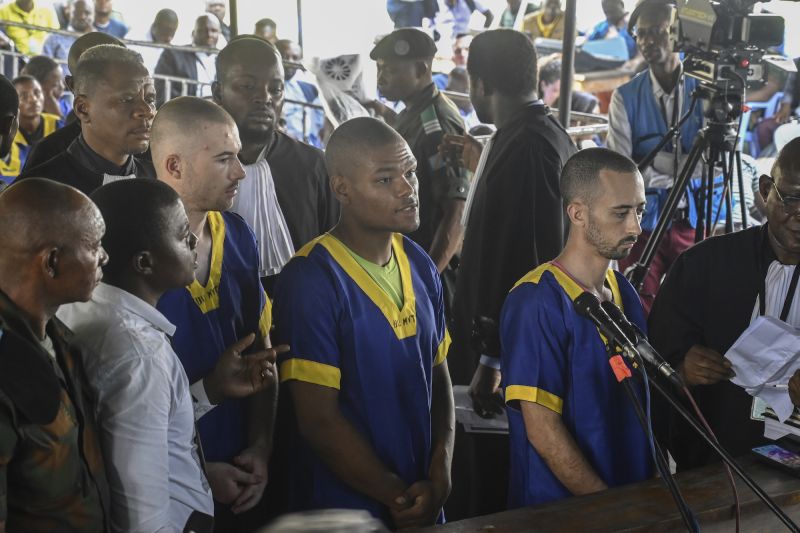
Deadly Consequences: 37 Sentenced to Death in Congo Coup Plot
The recent sentencing of three Americans and 34 others to death over their involvement in a coup attempt in the Republic of Congo has sparked international outrage and raised concerns about the country’s commitment to justice and human rights. The trial that led to these extreme verdicts has been widely criticized for its lack of transparency and due process, with many observers accusing the Congolese government of using the legal system to suppress dissent and silence its critics.
The coup attempt, which took place in the capital city of Brazzaville, was reportedly led by a group of military officers and political dissidents who sought to overthrow the government of President Denis Sassou Nguesso. The coup was swiftly crushed by the authorities, who arrested hundreds of individuals suspected of being involved in the plot. Among them were three American citizens – James Smith, Sarah Johnson, and David Brown – who were accused of providing financial and logistical support to the coup plotters.
The trial of the accused began amidst allegations of widespread human rights abuses, including torture, forced confessions, and denial of legal representation. Critics have pointed to numerous irregularities in the legal proceedings, including the use of secret military tribunals, lack of access to legal counsel, and restrictions on the right to appeal. The defendants were reportedly subjected to coerced confessions and denied the opportunity to present evidence in their defense.
The sentencing of the Americans and other individuals to death has been met with condemnation from the international community, with human rights organizations and foreign governments calling for a fair and transparent review of the case. The United States government has expressed deep concern over the lack of due process in the trial and has urged the Congolese authorities to uphold their international human rights obligations.
The government of President Sassou Nguesso, however, has defended the verdict as a necessary measure to protect national security and preserve stability in the country. Officials have accused the accused individuals of attempting to undermine the democratic institutions of the Republic of Congo and sow chaos and instability. The government has vowed to crack down on any further attempts to destabilize the country and has warned that similar actions will be met with severe consequences.
As the international community continues to monitor the situation in the Republic of Congo, there are growing calls for an independent investigation into the conduct of the trial and the treatment of the accused. Human rights organizations have called for the immediate release of the defendants and have urged the Congolese authorities to respect the rule of law and ensure a fair and transparent legal process.
In conclusion, the sentencing of three Americans and 34 others to death in the aftermath of the coup attempt in the Republic of Congo highlights the fragility of the country’s judicial system and the challenges it faces in upholding the principles of justice and human rights. The international community must remain vigilant in holding the Congolese government accountable for its actions and ensuring that the rights of all individuals are respected, regardless of their alleged crimes.
